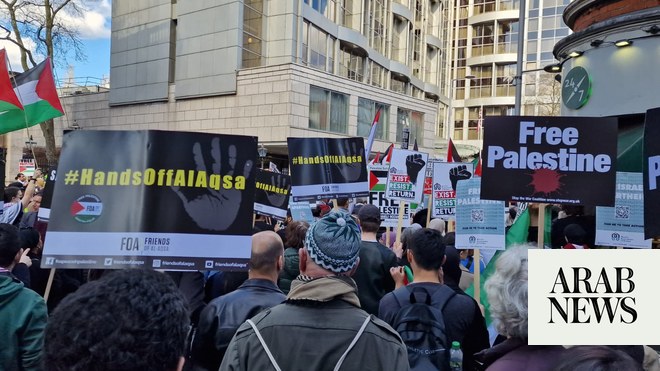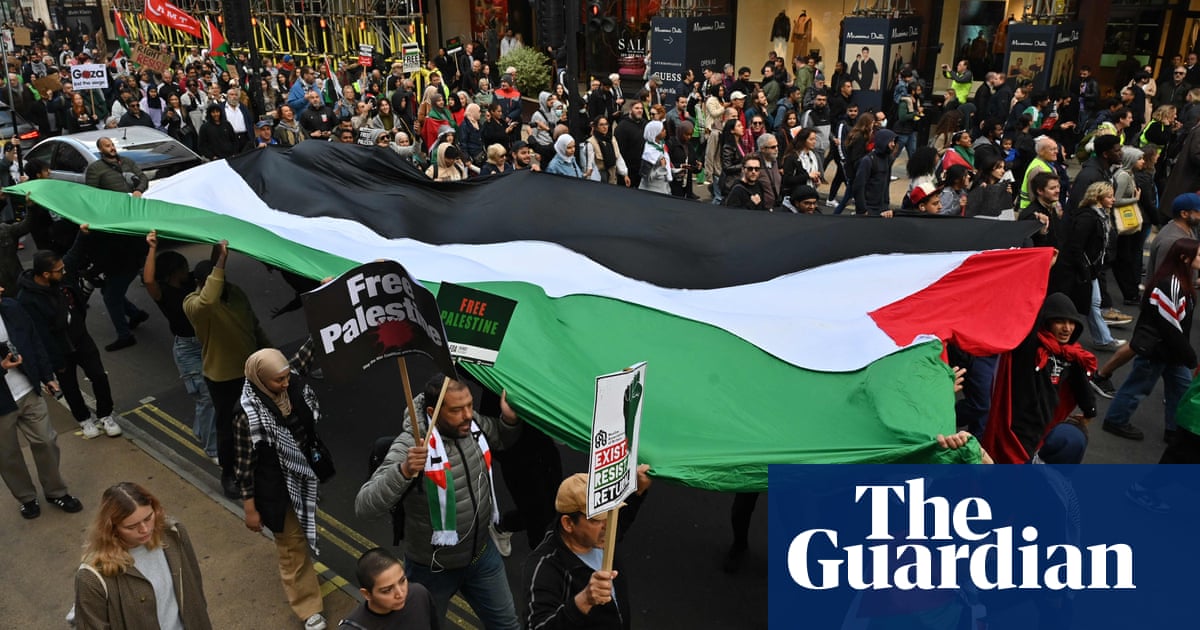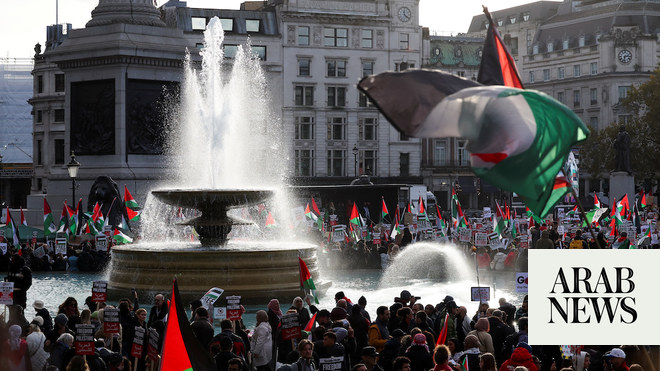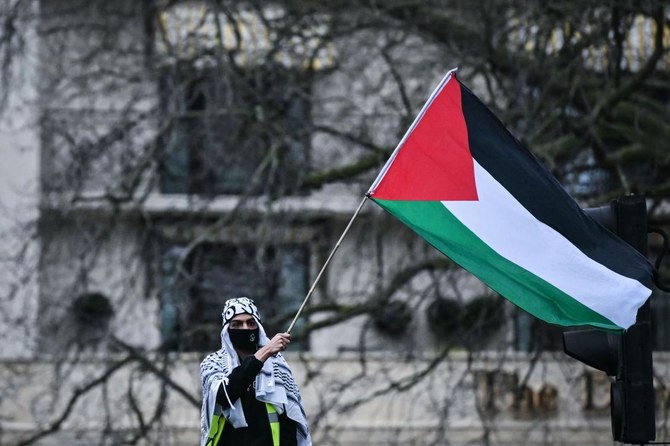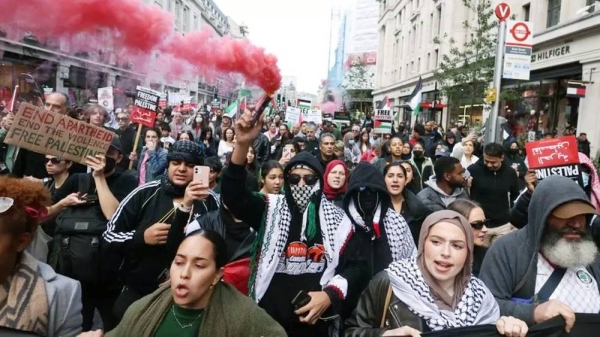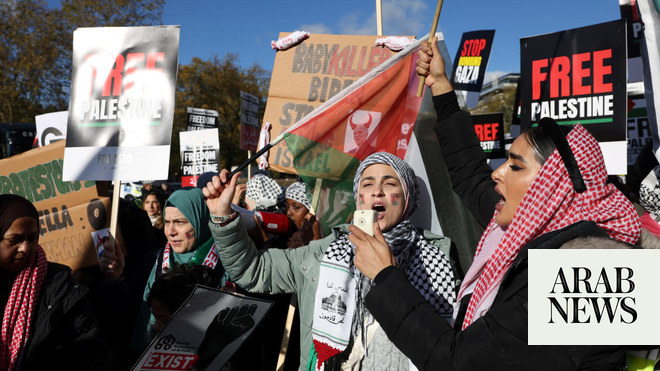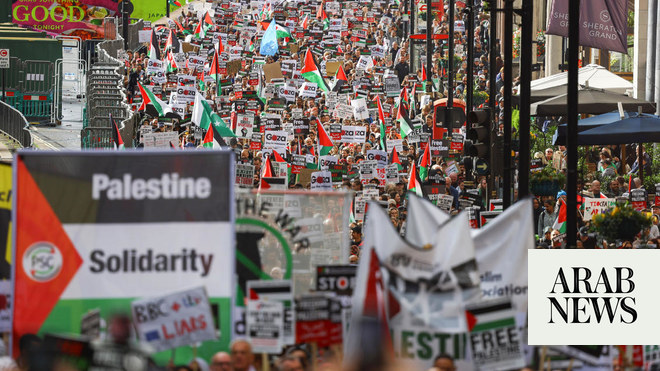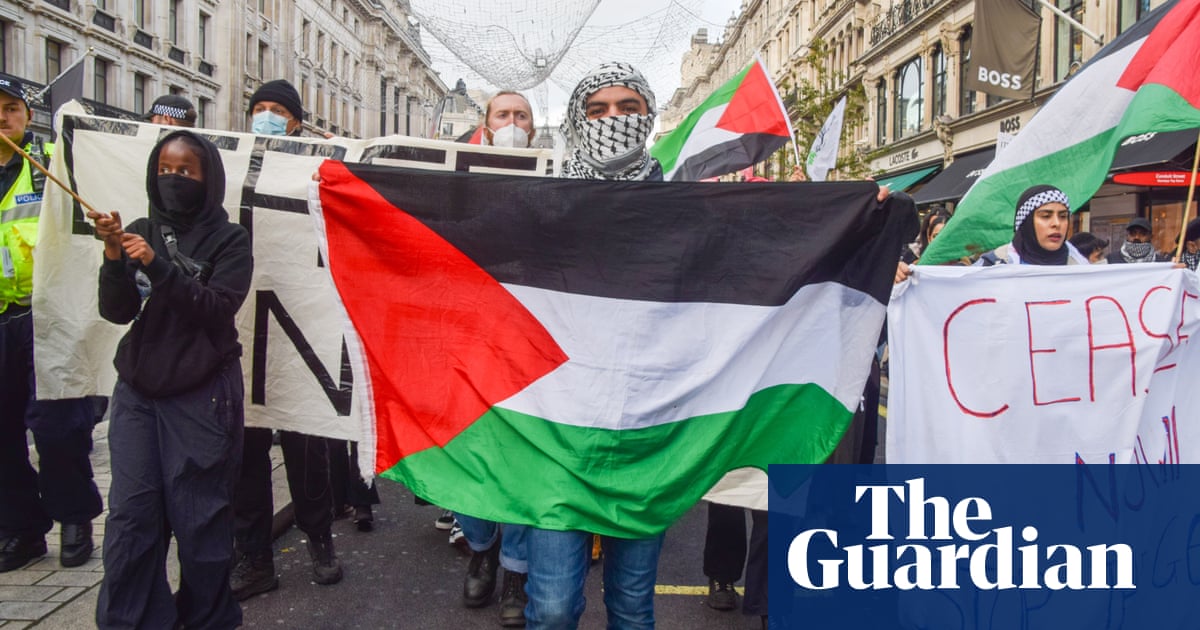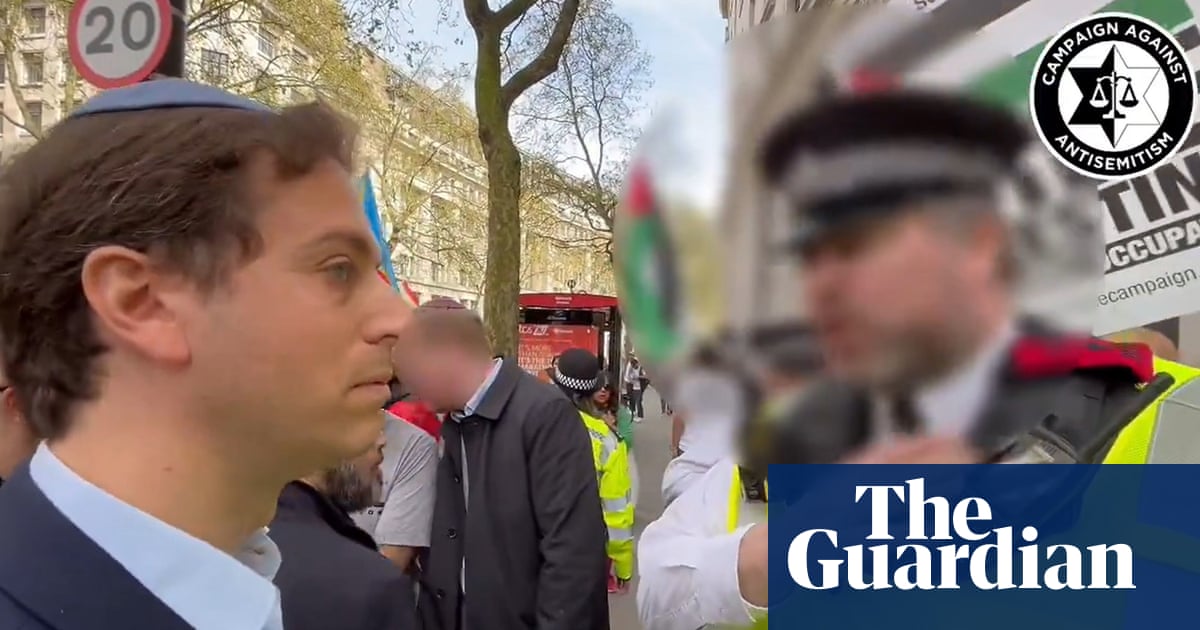
Campaign Against Antisemitism has cancelled its planned counter-protest against a pro-Palestinian march through central London on Saturday.
The group, led by Gideon Falter, had said it wanted to use the “walk together” initiative to support its view that the area around the planned pro-Palestinian march was not safe for Jewish people.
But on Friday afternoon CAA announced that its event had been cancelled amid pressure from those within the Jewish community who feared it could backfire.
In a statement, CAA promised future protests. A spokesperson said: “Due to the thousands of people now intending to join and then walk where they please – something that we used to take for granted in London as Jewish people without having to discuss with police ahead of time – we still do not have confidence that people would be safe.
“Additionally, we have received numerous threats and our monitoring has identified hostile actors who seem to have intended to come to any meeting locations that we announced. The risk to the safety of those who wished to walk openly as Jews in London tomorrow as part of this initiative has therefore become too great.”
A small static counter-protest of about 100 people is expected to still go ahead.
Last week CAA released a short video clip showing a Met sergeant telling Falter that because he appeared “openly Jewish”, he would not be allowed to walk across a pro-Palestinian protest march through central London.
A 13-minute video of the exchange showed the officer offering to escort Falter away from the demonstration and saying he was being disingenuous about his motives for wanting to cross the road at that point.
Falter demanded that the Met commissioner, Sir Mark Rowley, resign, but Britain’s top officer told the Guardian that the sergeant had been right to act to prevent any trouble by stopping opposing sides coming together.
The longer version of the video shows the officer explaining to Falter that his approach was informed by the knowledge he had already deliberately walked out into the middle of the march and was therefore “looking to try and antagonise this”, according to the former Scotland Yard chief superintendent Dal Babu.
Rowley said: “The sergeant at the scene clearly assessed that there was a risk of confrontation and was trying to help Mr Falter find a different route. I completely understand why the sergeant made this assessment. A couple of turns of phrase were clumsy and offensive … and we’ve apologised for that.”
Police said last Saturday’s pro-Palestinian march was the 12th large-scale protest since the 7 October attacks by Hamas on Israel, which led to a bitter and bloody conflict in the Middle East.
The Met assistant commissioner Matt Twist said the cost of policing those and other linked protests was £38.5m. He said it was not for his force to call for any change in the law to further restrict demonstrations.
He said while the protests had been largely peaceful, with up to 300,000 attending one demonstration, there had been 415 arrests, including 193 for alleged antisemitic offences such as offensive placards and chants, and 15 for alleged breaches of counter-terrorism laws, largely on suspicion of supporting Hamas.
Meetings this week between the Met and key Jewish groups led the Community Security Trust and the Jewish Leadership Council to back the police’s right to keep opposing groups apart.
Twist said that while the police’s primary tactic was engaging with both sides, counter-protesters trying to get at rival marchers could risk arrest.
“Everybody has to obey the law,” he said. “If we saw that risk manifesting itself, there are a number of powers that we might be able to use under the Public Order Act or pursuant to prevent a breach of the peace, that would mean we would prevent that from taking place.”
Amid talk of further clampdowns on protest, Ben Jamal, of the Palestinian Solidarity Campaign, one of the march’s organisers, said: “The right to protest is absolutely vital to the effectiveness of our democracy. Public opinion is in favour of an immediate ceasefire, but we need to push our political establishment to take heed.
“The right to protest is not a gift of politicians, it is a hard-won right. We cannot put a price on democracy. We will continue to march.”




